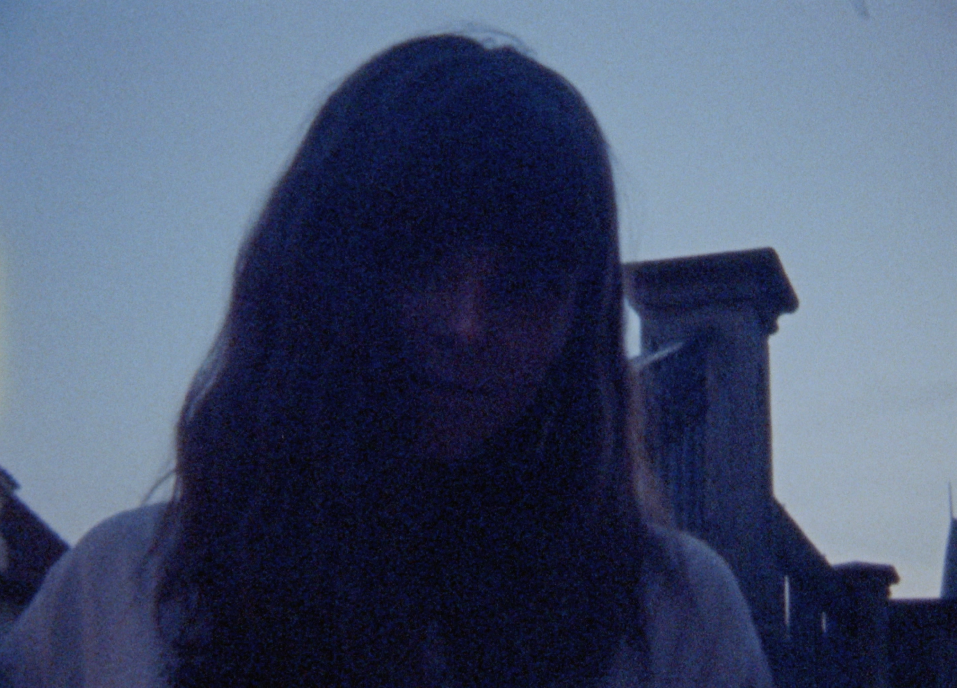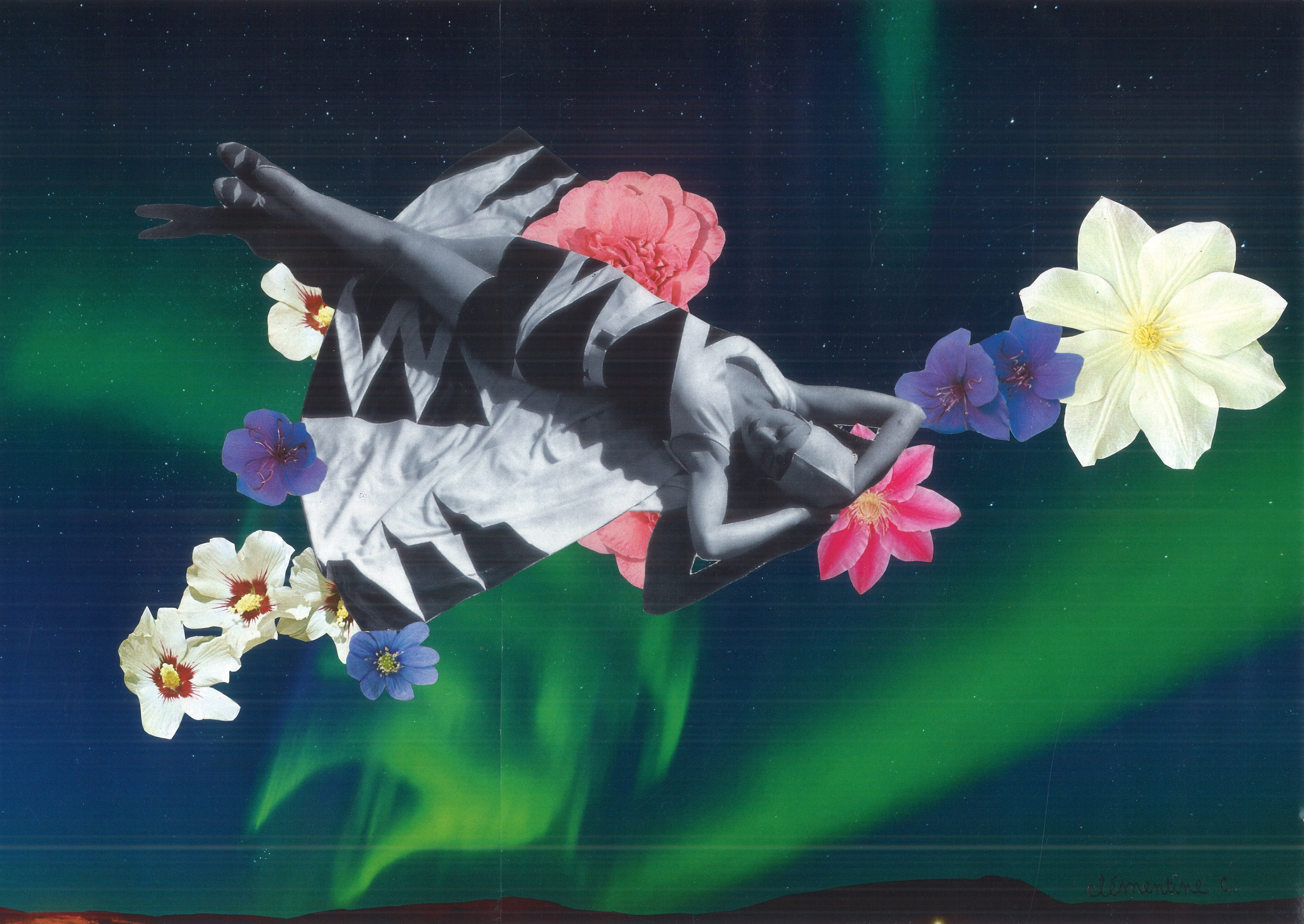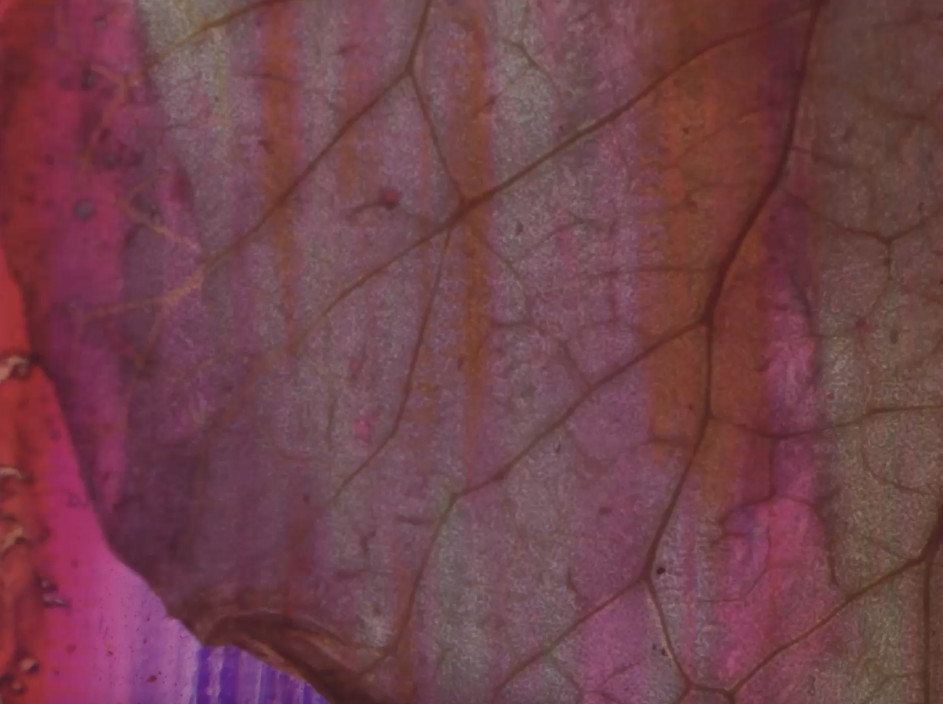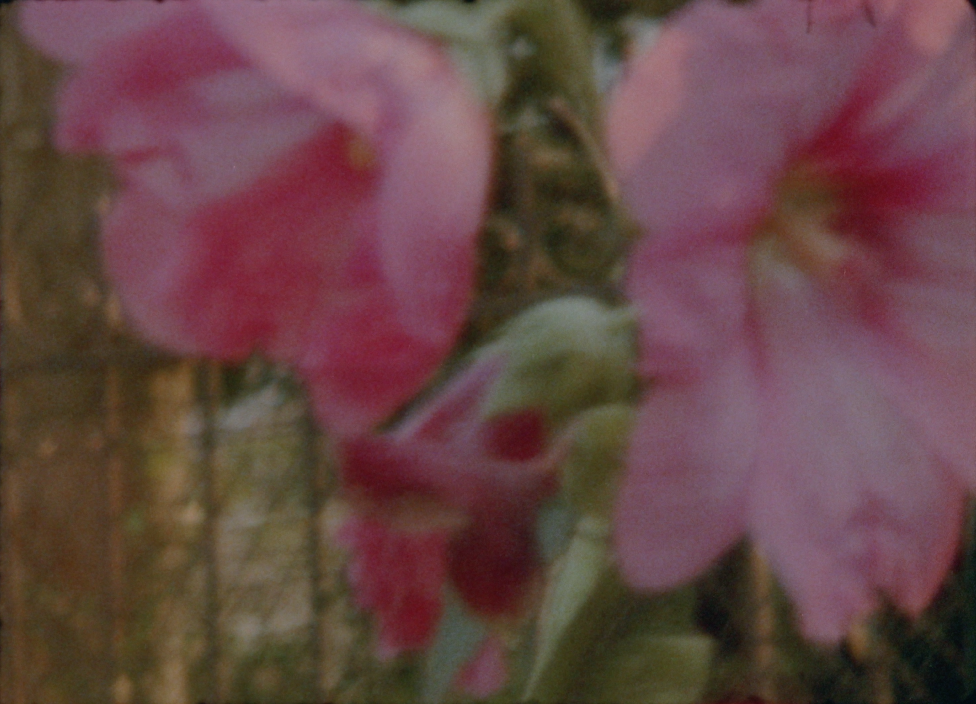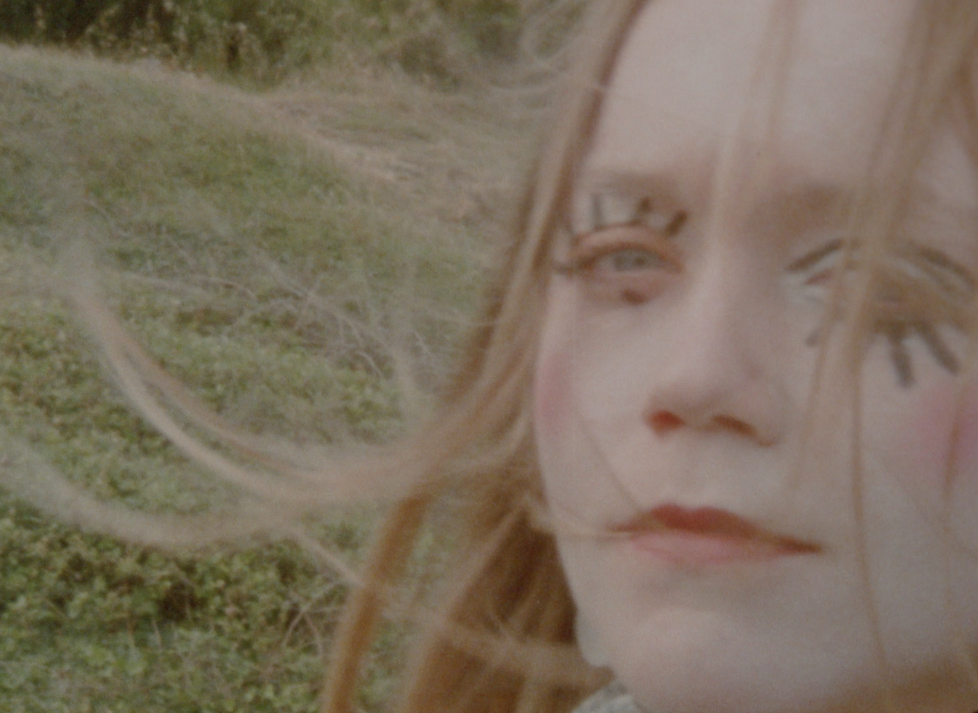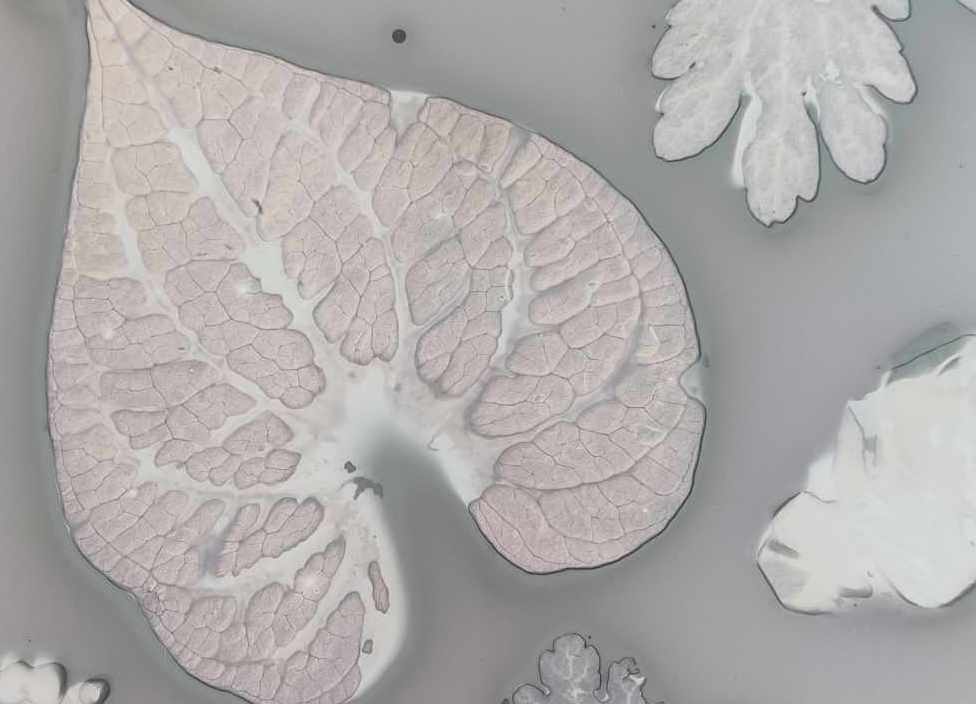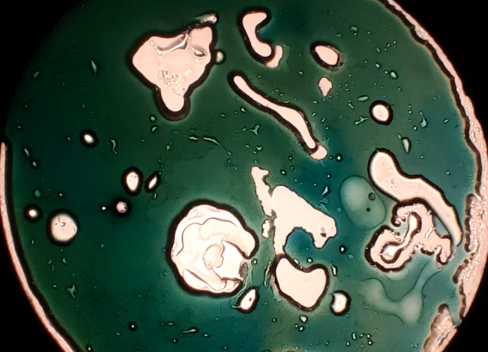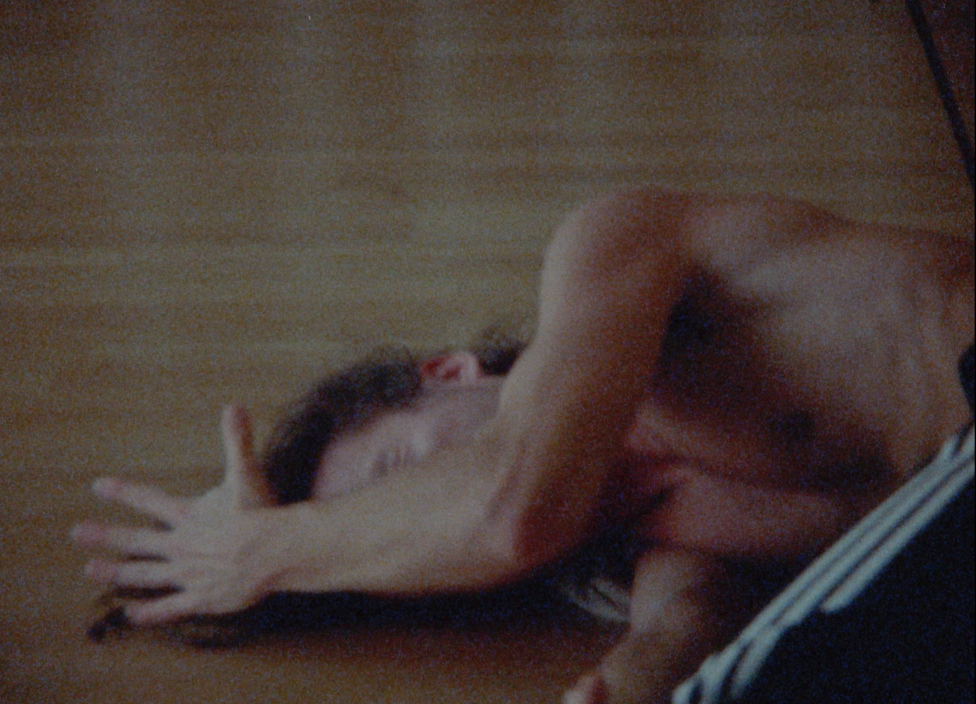about
Clémentine Chapron
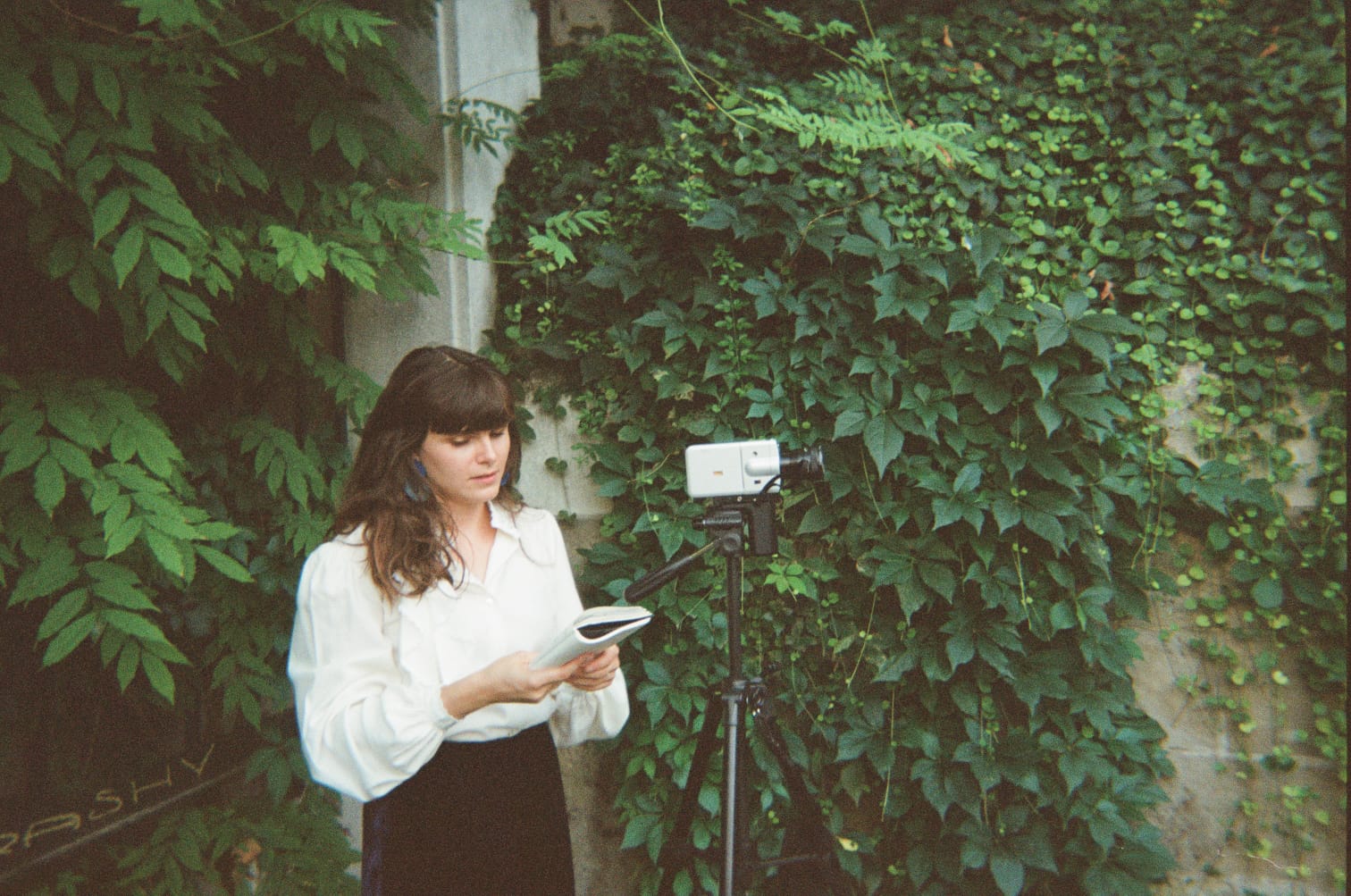
Vienna, August 2021, during the shooting of Wail's video for Aux Portes
I started making experimental Super 8 films in 2018 during my Master's Degree in Cinéma “Creation and filmmaking” at Paris 8 University. This medium was for me a way of to show textures, to make visual art with the means of cinema. Since then, I've made several films, including Obscurity for dancer Camille Guibert and an experimental documentary about the RockOpera Praha theater in Czech Republic. I have also shot music videos in France and Austria.
Nowadays, I often work directly on film, painting and sticking flowers on it, to bring out more textures. My film Colours & flowers for scratches was made using this technique, as is my next project, Flowers for my Dad. For this film, I also developed old out-of-date Kodachrome 40 films in coffee, before painting them and sticking flower petals onto them. Because beyond the plastic aspect of my filmmaking, I'm also looking to work more in harmony with nature. I began working with plants directly on the emulsion during a phytography workshop on photo paper in 2021. Since then, I've been producing phytograms that I exhibit and sell at events and online. I'm also beginning to develop the technique on film and offer workshops based on these practices.
In parallel with my analogue work, I've been creating handcut collages for the past ten years. Initially, they were a way for me to give an overall vision of my film projects in the making. Today, it's a practice in its own right, enabling me to create dreamlike, psychedelic worlds while working with existing materials. I also exhibit these collages and sell them at events and online.
While there's a desire for plasticity in my approach, there's above all a desire to return to craftsmanship and a need to produce better, to consume less. My work revolves around an economy and ecology of cinema: making films in film and therefore shooting less, making films without a camera, using obsolete, outdated, old and therefore already produced materials. Over time, this economy has evolved into a desire, a political vision of art and cinema.
Nowadays, I often work directly on film, painting and sticking flowers on it, to bring out more textures. My film Colours & flowers for scratches was made using this technique, as is my next project, Flowers for my Dad. For this film, I also developed old out-of-date Kodachrome 40 films in coffee, before painting them and sticking flower petals onto them. Because beyond the plastic aspect of my filmmaking, I'm also looking to work more in harmony with nature. I began working with plants directly on the emulsion during a phytography workshop on photo paper in 2021. Since then, I've been producing phytograms that I exhibit and sell at events and online. I'm also beginning to develop the technique on film and offer workshops based on these practices.
In parallel with my analogue work, I've been creating handcut collages for the past ten years. Initially, they were a way for me to give an overall vision of my film projects in the making. Today, it's a practice in its own right, enabling me to create dreamlike, psychedelic worlds while working with existing materials. I also exhibit these collages and sell them at events and online.
While there's a desire for plasticity in my approach, there's above all a desire to return to craftsmanship and a need to produce better, to consume less. My work revolves around an economy and ecology of cinema: making films in film and therefore shooting less, making films without a camera, using obsolete, outdated, old and therefore already produced materials. Over time, this economy has evolved into a desire, a political vision of art and cinema.
